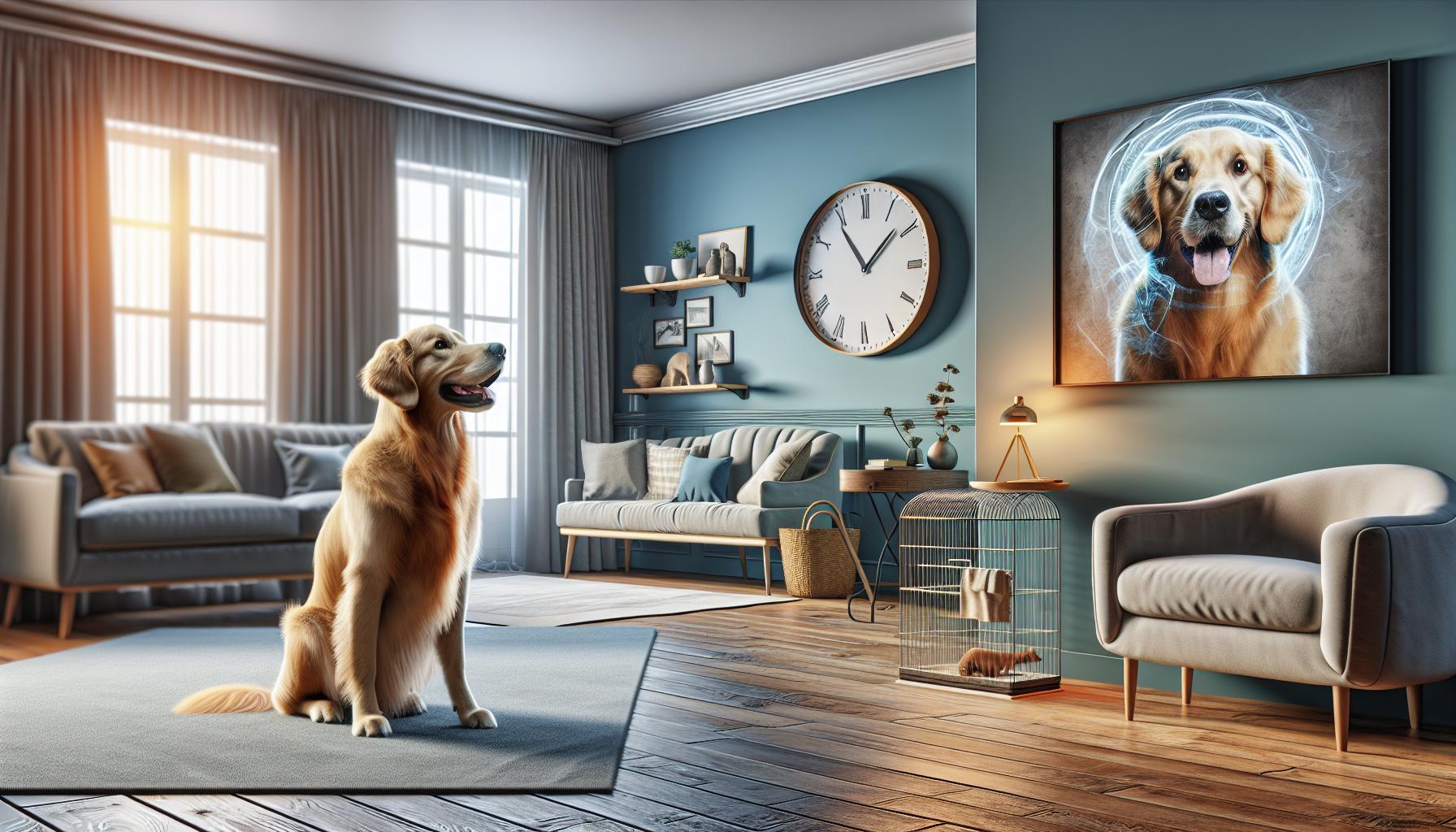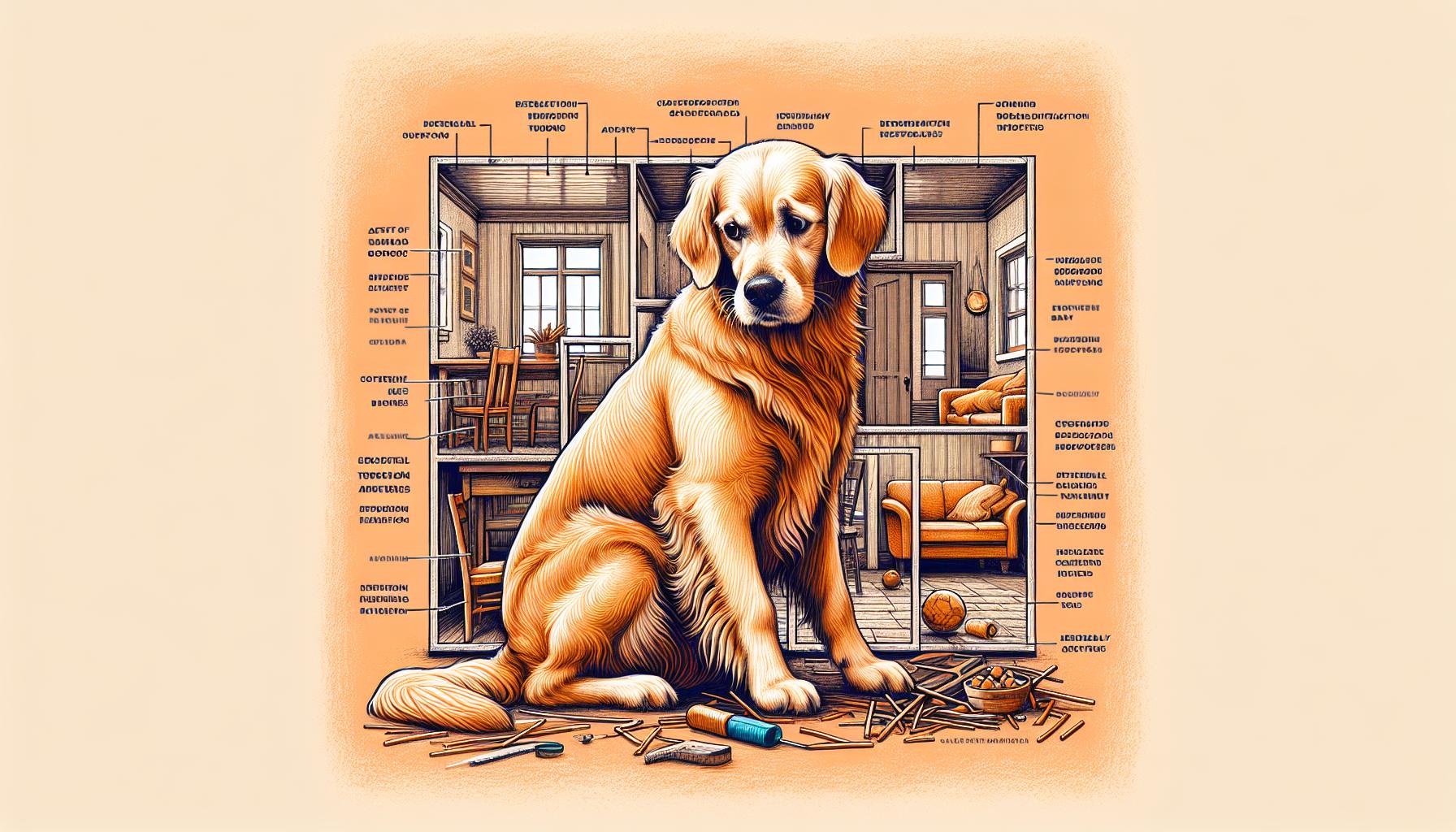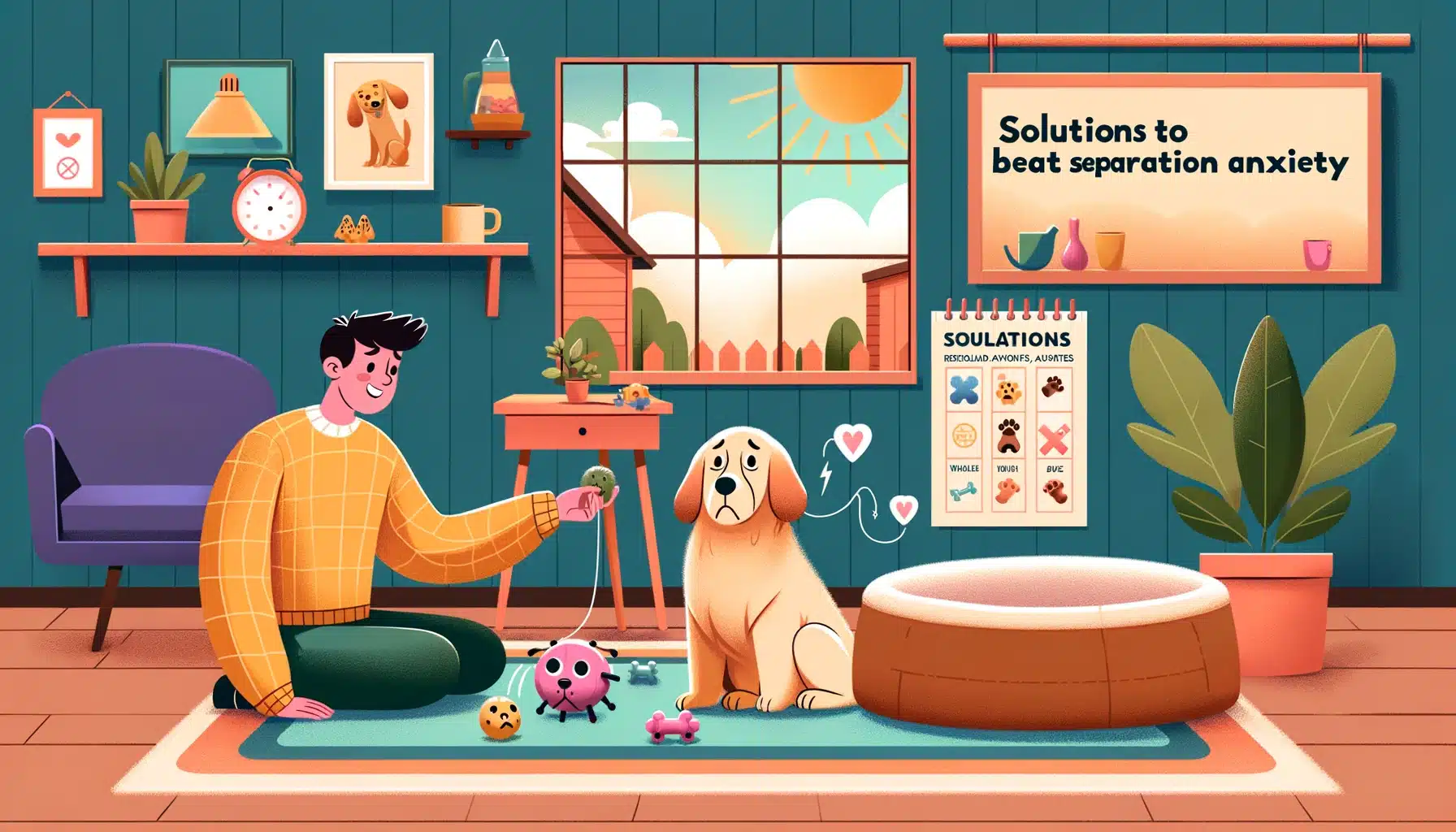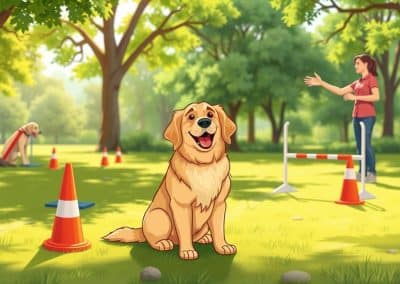Beat Separation Anxiety in Golden Retrievers. As a long-time Golden Retriever owner, I’ve seen firsthand how separation anxiety can affect these loving, loyal dogs. It’s a condition that’s not only stressful for them but can also turn your home upside down. From chewed-up shoes to incessant barking, the signs are hard to miss. But what really causes this anxiety in such a friendly breed?
Understanding separation anxiety in Golden Retrievers is crucial for any pet parent. It’s about more than just missing their human friends; it’s a deep-rooted issue that can impact their overall well-being. I’ve navigated these choppy waters myself, and I’m here to share insights on recognizing the signs and finding solutions to help your furry friend feel more secure.
Recognizing the Signs of Separation Anxiety
As a Golden Retriever lover myself, I’ve spent years observing and understanding the subtle and not-so-subtle signs of separation anxiety in our furry companions. Recognizing these signs early is the key to providing the right support and ensuring they lead happy, healthy lives.
The most common indicators that your Golden Retriever might be struggling with separation anxiety include destructive behavior, excessive barking, and attempts to escape. They’re not trying to be bad; they’re just overwhelmed by their feelings. I’ve seen my own retrievers tear up cushions and scratch door frames when they felt anxious. It’s hard to witness, but understanding these actions as calls for help is the first step toward addressing the issue.
Another telltale sign is pacing or restlessness. Before I leave the house, I sometimes notice my Golden starts pacing or seems unable to settle. This restlessness is a clear indicator of their anxiety about being alone.
Additionally, if you come home to find your Golden Retriever has had accidents indoors despite being house-trained, it might not just be a lapse in behavior. Stress and anxiety can cause these accidents, a direct response to the stress of separation.
Recognizing these signs in Golden Retrievers isn’t just about observing their actions. It’s about empathizing with their emotional state and understanding the gravity of what they’re going through. Armed with this knowledge, we can start taking steps toward alleviating their anxiety and ensuring they feel secure, even when we’re not around.
Understanding the Causes of Separation Anxiety in Golden Retrievers

As a devoted Golden Retriever owner and blogger, I’ve seen firsthand how separation anxiety can affect our furry friends. Recognizing the causes is just as crucial as spotting the signs. In my experience, several factors contribute to the development of separation anxiety in Golden Retrievers, and understanding these can help us address the issue more effectively.
Firstly, changes in routine or environment can be significant triggers. Golden Retrievers thrive on routine, and any disruption, like a move to a new house or a change in the family’s schedule, can be unsettling for them. I’ve noticed that these situations often lead to increased anxiety levels in dogs, highlighting the importance of maintaining a stable environment whenever possible.
Socialization plays a huge role as well. Golden Retrievers that weren’t properly socialized as puppies may develop separation anxiety, as they find it challenging to cope with being alone. Ensuring that your dog has plenty of positive interactions with both humans and other dogs early on is key to preventing anxiety in the future.
Lastly, sudden or frequent absences can trigger anxiety. If a dog is used to constant companionship and then suddenly finds themselves alone for extended periods, the shock can lead to anxiety. Gradually acclimating your dog to spending time alone can help mitigate this.
In my journey with my own Golden Retrievers, I’ve discovered that understanding these causes is the first step in creating a more secure and happy environment for them. Recognizing what might be triggering their anxiety allows us to take proactive steps to help them feel more comfortable, even when they’re by themselves.
Impact on the Well-being of Golden Retrievers

Understanding the impact of separation anxiety on the well-being of Golden Retrievers is crucial for every pet owner. I’ve seen firsthand how this condition can affect their overall health and happiness. For these dogs, the effects can manifest in both physical and emotional ways, which are important to recognize early on.
Physiologically, separation anxiety can lead to destructive behaviors, such as chewing on furniture or excessive digging. It’s not just about the inconvenience or the potential damage to our homes. These actions are signs of distress and can result in self-injury, which might require veterinary attention. Equally concerning are the changes in eating habits that some dogs exhibit, ranging from loss of appetite to overeating, directly impacting their physical health.
From an emotional standpoint, the picture isn’t brighter. Golden Retrievers may display signs of depression, frequent whimpering, or pacing, reflecting their internal struggle. Their innate need for companionship makes them highly sensitive to changes in their social environment, turning periods of isolation into moments of sheer panic and fear. This anxiety can affect their sleep patterns, leading to a decrease in energy levels and a noticeable decline in their overall zest for life.
The repercussions of untreated separation anxiety ripple out, affecting not just the dogs but also the bond they share with their owners. It’s pivotal to acknowledge these signs early and seek ways to mitigate the stress they cause. Through understanding and action, we can help our Golden Retrievers lead a balanced and joyful life, ensuring the deep bond we share isn’t marred by anxiety and stress.
Solutions to Help Golden Retrievers Cope with Separation Anxiety

When I started noticing signs of separation anxiety in my Golden Retriever, I knew I had to find effective solutions to help him cope. Through extensive research and consulting with vets, I’ve discovered several strategies that can make a significant difference. It’s key to remember that every dog is unique, so what works for one may not work for another. Here are some of the methods I found most helpful:
Create a Safe Space: Setting up a comfortable area where your Golden Retriever feels secure can help alleviate anxiety. This could be a crate if they’re crate-trained or a special corner with their favorite toys and a cozy bed.
Gradual Desensitization: This involves slowly getting your dog used to your absence, starting with very short departures and gradually increasing the time you’re away. It’s crucial not to rush this process, as it could otherwise backfire.
Establish a Routine: Dogs, especially Golden Retrievers, thrive on routine. Establishing a predictable daily schedule for meals, walks, and playtime can provide a sense of security and help mitigate anxiety.
Exercise: Ensuring your Golden gets plenty of exercise is vital. A tired dog is generally a happy dog. Regular physical activity helps burn off excess energy and can reduce anxiety levels.
Consider Professional Help: If your Golden’s anxiety is severe, it might be worth consulting a professional dog trainer or behaviorist. They can offer personalized strategies tailored to your dog’s specific needs.
Implementing these solutions requires patience and consistency, but over time, they can significantly improve your Golden Retriever’s well-being and help manage their separation anxiety. Remember, the goal is to ensure your furry friend feels loved, secure, and comfortable, even when you’re not around.
Conclusion
Tackling separation anxiety in Golden Retrievers is a journey that requires patience, understanding, and consistent effort. By implementing the strategies discussed, you’re taking significant steps toward ensuring your furry friend feels safe and loved, even in your absence. Remember, each dog is unique, so it’s crucial to tailor your approach to meet their specific needs. Don’t hesitate to seek professional guidance if you’re struggling to manage their anxiety on your own. With time and dedication, you can help your Golden Retriever overcome their separation anxiety, fostering a happier, more secure bond between you both.









